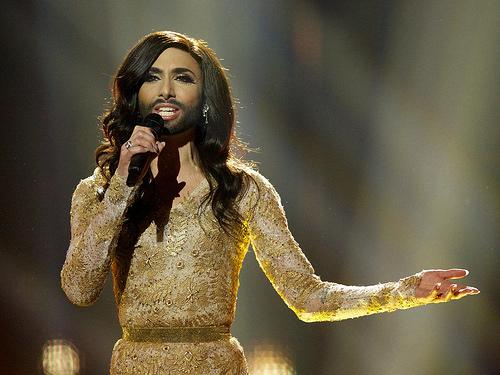By Juliana McLeod, editorial editor
On May 10, Austrian singer Conchita Wurst was announced winner of the 2014 Eurovision Song Contest. The 25-year-old vocalist, also known as Thomas Neuwirth, was awarded the glass, microphone-shaped trophy after performing “Rise Like a Phoenix.”
Wurst, a drag performer who paired a gold dress with a beard, won the 59th annual contest with 290 points. The Netherlands came in second in the competition with Sweden coming in third.
“For me, my dream came true. But for society it showed me that people want to move on, to look to the future. We said something, we made a statement,” said Wurst, in response to the victory.
Wurst’s success is the first win by Austria in the Eurovision competition since 1966, only a decade after the tradition began.
Since 1956, European nations join in one major city every year for the singing contest between individuals or groups representing their own countries. The winner’s country becomes the host for the following year’s event. This year’s contest took place in Copenhagen after Danish singer Emmelie de Forest won the 2013 show with her song, “Only Teardrops.”
Wurst’s participation in the famed event received negative attention after other contestant countries made their disapproval known. Armenia, Belarus and Russia petitioned that Wurst be removed from the competition in accordance with the countries’ anti-gay propaganda laws, CNN reported.
However, this did not stop Wurst from dominating the show and turning the criticism into positive words. The singer thanked the disputants for the attention, according to the The Independent.
The singing contest has long been questioned over the possible connection between voting and each country’s politics. During this year’s show, Russian contestants Anastasia and Maria Tolmachevy were booed during their performance, in connection with Russia’s disapprobation of gay rights.
Other famous acts have participated in and won the Eurovision Song Contest in the past, including ABBA in 1974 and Céline Dion in 1988, cementing the dream of the competition’s winners: to receive a chance at fame through the contest’s popularity.
Sealed by Wurst’s win, Austria will host the 60th annual Eurovision Song Contest.
Photo courtesy Paul Townsend, Creative Commons.









